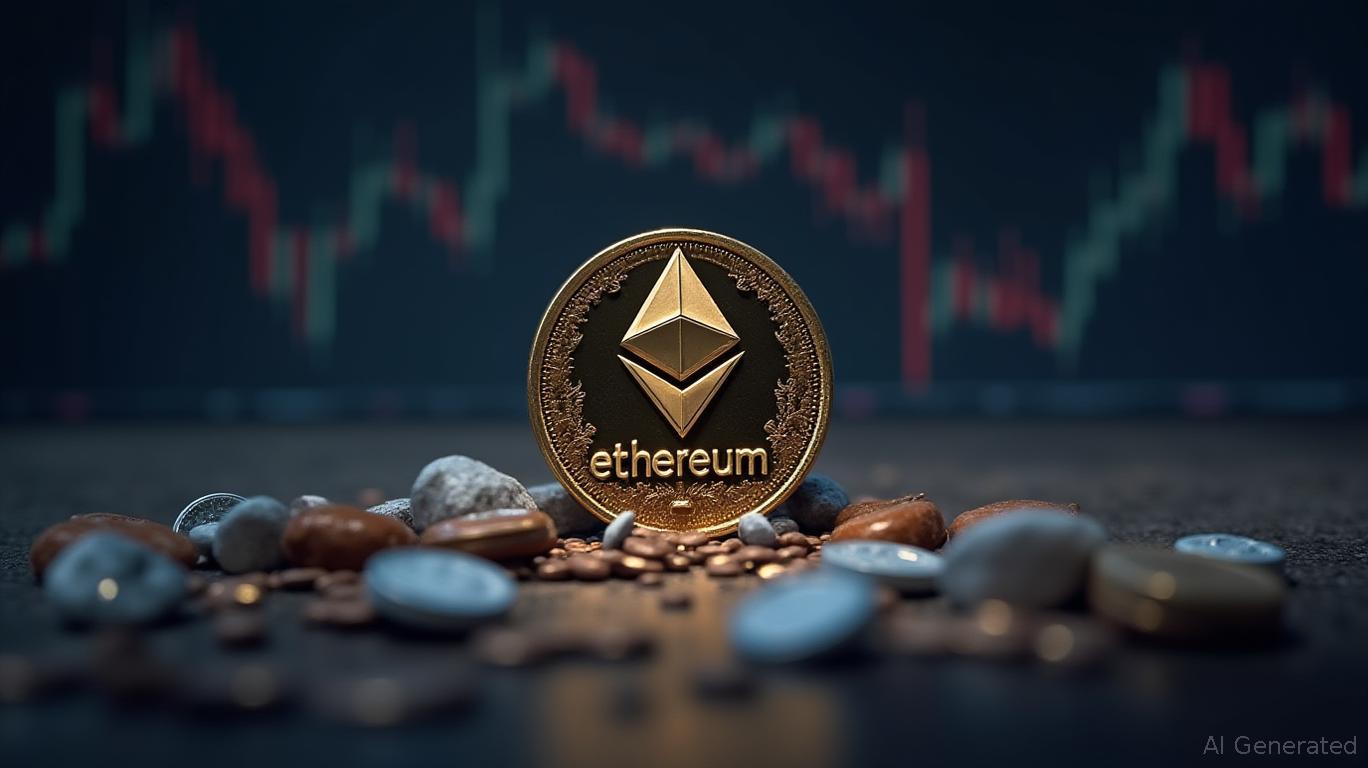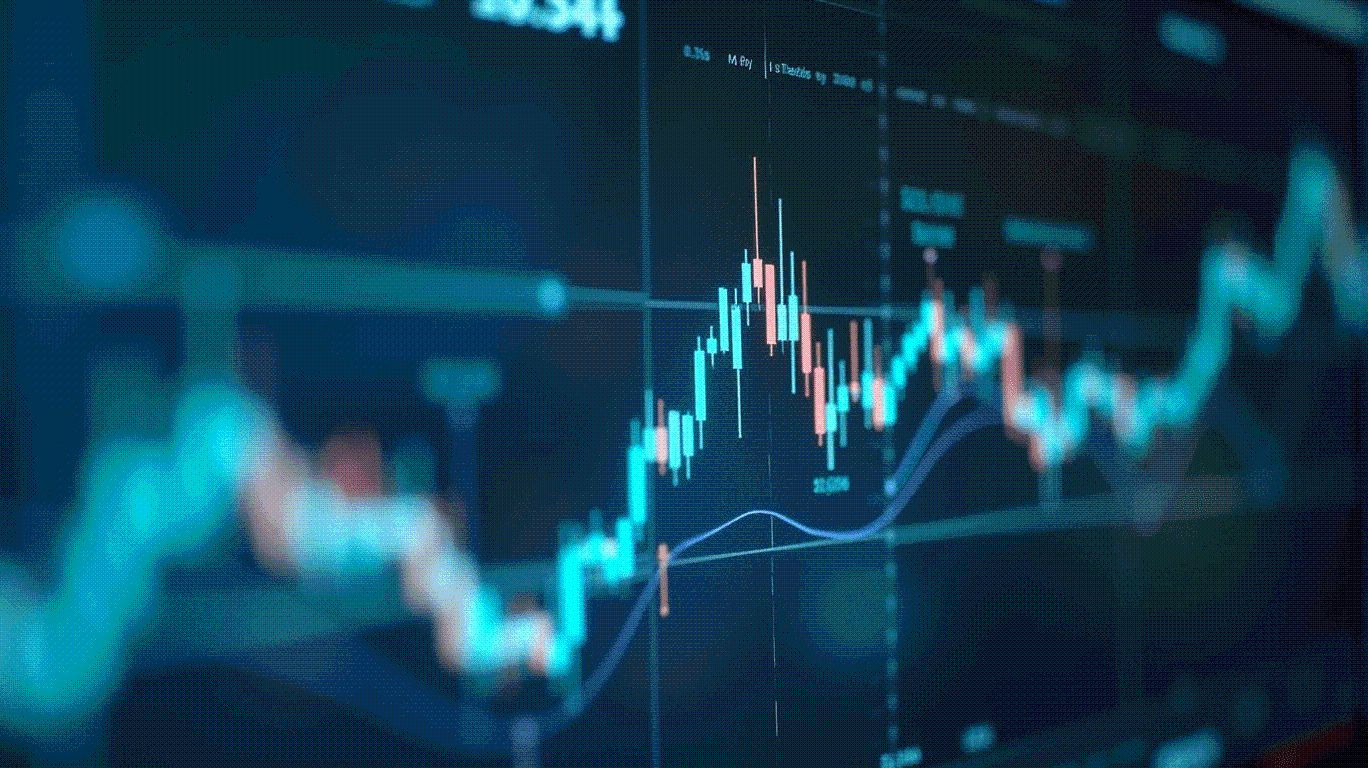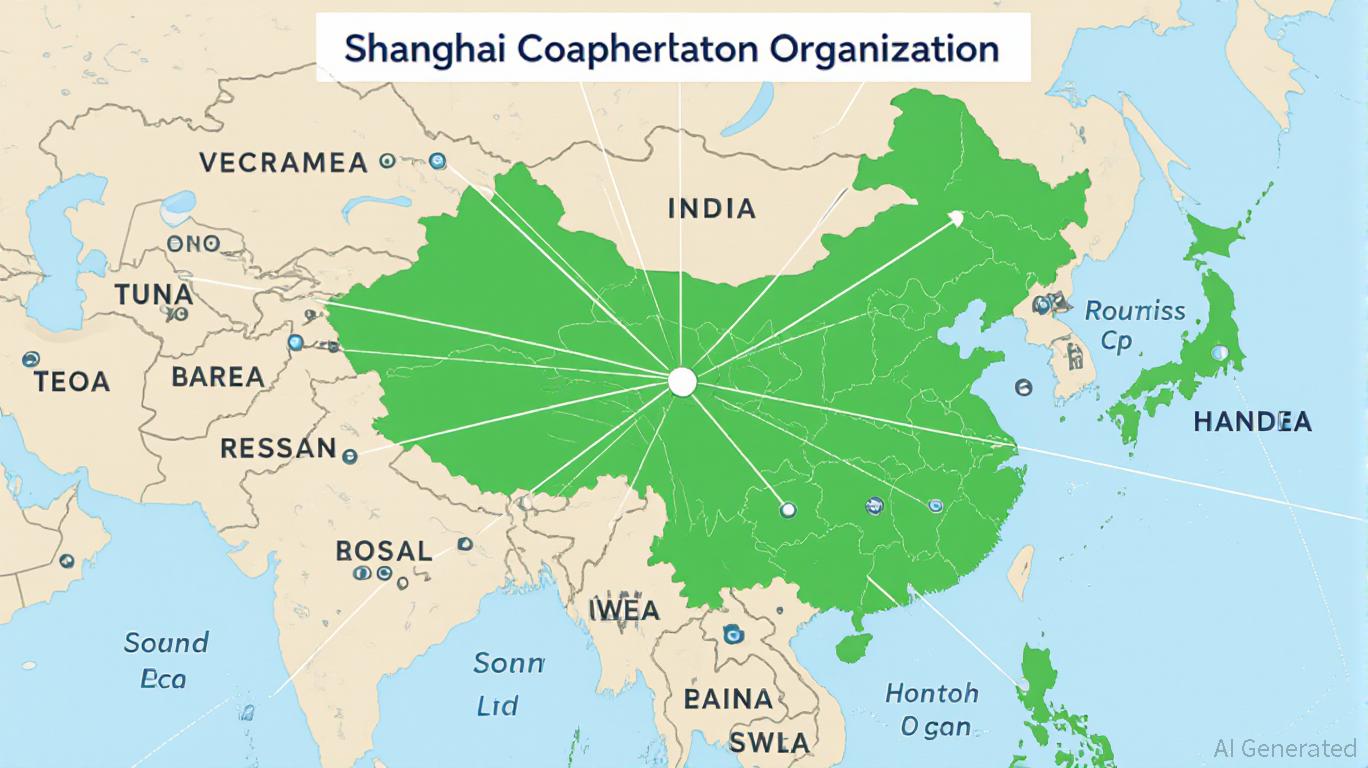Ethereum News Today: Ethereum's $4.96B Exit Queue Tests Long-Term Bull Case
- Ethereum (ETH) faces short-term pullback risks near $4,280 after failing to break $4,600, but $1.2B ETF inflows and Layer-2 growth support long-term optimism. - Record $4.96B validator exit queue raises selling pressure concerns, extending withdrawal times to 18 days and testing market resilience. - Institutional confidence grows with $1.2B whale transfers to ETH, robust staking activity, and Standard Chartered's $7,500 year-end price target. - Analysts predict 10.22% 5-day price increase to $4,933, but
Ethereum (ETH) remains a focal point in the cryptocurrency market amid mixed technical signals and contrasting price predictions. Following a failed attempt to break above $4,600, the asset has retreated slightly, with analysts pointing to a potential pullback to $4,280 in the short term. Despite this near-term weakness, Ethereum's broader fundamentals—including Layer-2 ecosystem expansion, growing staking activity, and a surge in ETF inflows—continue to fuel optimism for a longer-term upward trend [1]. Over the past three days, Ethereum ETF inflows have reached $1.2 billion, reversing earlier mid-August outflows and pushing ETH ETF assets under management above $27 billion [1]. These inflows, coupled with strong institutional interest, suggest continued support for Ethereum’s price trajectory.
The price action of Ethereum in recent days has been marked by volatility. As of August 29, ETH traded near $4,340, down 5.05% in the previous 24 hours [1]. Technical indicators show the asset trading below both its 50-day and 200-day moving averages, signaling short-term bearish pressure. However, key support levels—such as $4,266—remain intact, and resistance levels at $4,598 and $4,690 are seen as critical for a potential rebound [1]. The market is also grappling with a record $4.96 billion validator exit queue, with over 1 million ETH tokens waiting to be withdrawn from staking [2]. This mass exodus has extended validator exit times to a record 18 days and 16 hours, raising concerns about potential selling pressure [2].
Layer-2 adoption continues to drive Ethereum’s long-term narrative. Networks like Arbitrum and Optimism have been instrumental in expanding transaction capacity and reducing gas fees, improving user experience and fostering greater participation in decentralized finance (DeFi) applications [1]. Total value locked (TVL) in these Layer-2 solutions has seen consistent growth, reinforcing Ethereum’s position as a leading infrastructure for the blockchain ecosystem. Analysts note that such adoption is a key driver of Ethereum’s scalability and, by extension, its price potential.
Institutional backing has further bolstered Ethereum’s bullish case. Whale movements of $1.2 billion from Bitcoin to Ethereum have intensified speculation about a potential surge toward $15,000 [1]. Staking activity also remains robust, with 35,750 ETH (approximately $169 million) currently staked [1]. This demonstrates ongoing confidence in Ethereum’s yield-generating economy. Meanwhile, Standard Chartered has maintained a $7,500 year-end price target for ETH despite current selling pressure, citing strong underlying fundamentals and healthy market dynamics [2].
Looking ahead, Ethereum faces a pivotal period as it balances short-term technical weakness with long-term structural support. Price models predict a 10.22% increase in the next five days, potentially pushing ETH to $4,933 [1]. Analysts caution that corrections could occur before a sustained upward move, emphasizing the need for close monitoring of key resistance levels, ETF flows, and market sentiment [1]. The broader institutional and retail demand for Ethereum remains a stabilizing factor, with many investors viewing the asset as a critical component of a diversified crypto portfolio [2].
Source:

Disclaimer: The content of this article solely reflects the author's opinion and does not represent the platform in any capacity. This article is not intended to serve as a reference for making investment decisions.
You may also like
KDA -6233.32% Yearly Drop Amid Technical Deterioration
- KDA plunged 6,233.32% annually, with 59.64% 24-hour drop on Aug 31, 2025, amid severe technical deterioration. - RSI entered oversold territory while MACD remained negative, confirming sustained bearish momentum across all timeframes. - Key support levels and Fibonacci retracements were breached, with analysts predicting continued selling pressure due to weak buying interest.

Market Manipulation in DeFi: The $XPL Hyperliquid Pump and Whale Profits
- Hyperliquid's August 2025 XPL token manipulation exposed DeFi vulnerabilities as four whale addresses inflated prices 200%, netting $47.5M profits. - Exploiting isolated oracles and no position limits, whales triggered $60M in trader losses through cascading liquidations and order book manipulation. - Hyperliquid's post-incident safeguards (10x price caps, external data) created arbitrage opportunities while highlighting governance gaps in fast-growing DeFi platforms. - Historical XPL data shows 60% succ

BullZilla's Explosive Presale and the Evolution of Meme Coins in 2025: Strategic Meme Coin Investing in a New Era of Tokenomics and Cultural Momentum
- BullZilla ($BZIL) raised $10,000 in 50 minutes via a 4.7B-token presale, triggering its Mutation Mechanism to boost token prices every $100K raised or 48 hours. - The project's Roar Burn Mechanism permanently destroys 5% of supply at each milestone, reducing total supply by 70% and creating deflationary scarcity. - Unlike static meme coins like Cheems and Snek, BullZilla combines HODL staking (70% APY) and referral rewards with engineered scarcity, projecting a 915x return from $0.00000575 to $0.00527141

The SCO as a Strategic Platform for Emerging Markets Investment
- The SCO serves as a strategic investment hub for Global South markets, driven by China-Russia-India alignment reshaping global dynamics. - Member states challenge Western institutions through multipolar cooperation, with 2024 trade reaching $890.3B and $140B+ in cumulative investments. - Key opportunities include renewable energy (420 GW added), digital infrastructure growth, and localized supply chains in green energy and manufacturing. - Geopolitical risks persist, but the bloc's 23.16% global GDP and
